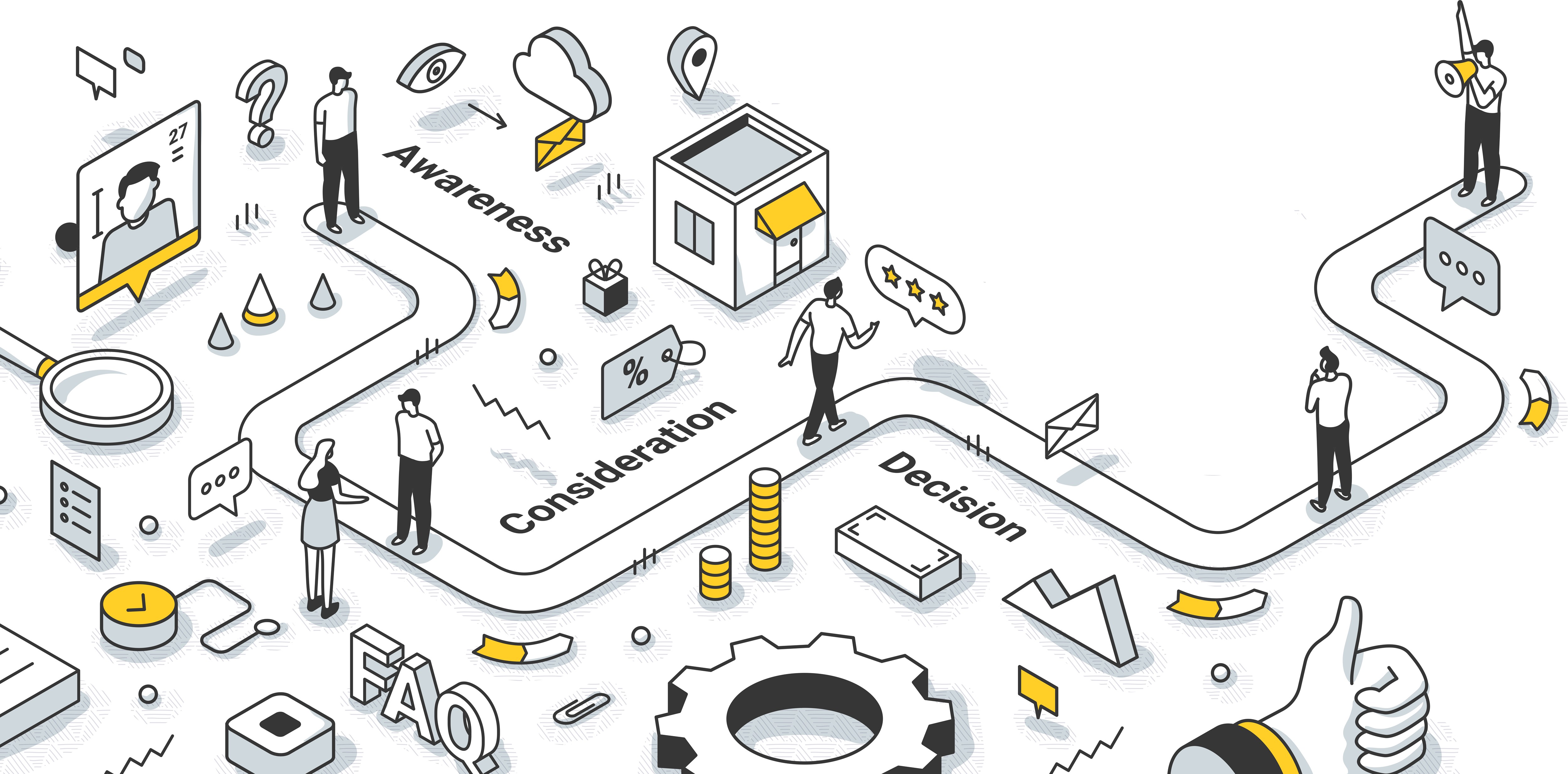Increasingly, car buyers want more content from websites and they don’t expect to divulge their personal details to access information.
Fail to deliver and consumers will swiftly move on.
Autoweb Design’s digital solutions director Martin Dew said: “It’s important for dealers to understand the concept of the anonymous lead, you don’t know who they are but you know what they’ve done.
"You need to build audiences for remarketing purposes and retargeting will become even more important.
“If you look at other industries, there’s an expectation from the consumer that you can get all the information you want without talking to a sales person, whereas in automotive, we have always tried to steer people into showrooms to talk to sales people.
"Consumers don’t want to do that, we have seen the sector adapting to what other industries can tell us.”
CitNOW now advocates the provision of more content on dealer websites, Ollie Parsons, head of sales and client services, said: “We have seen a reluctance to give customers everything from a digital point of view, the idea has always been to get people on site, but you can give more than just a teaser on the web and customers really respond to that.”
Interior 360 shots have grown in importance with CitNOW logging a longer dwell time in the cabin.
CitNOW is creating more content in other areas such as dealer focused yet-to-be-launched car videos as a response to consumer requests for more information.
These use material not available online together with a personal message.
Dealers are also embracing a data-driven approach based on their own data, according to Dew, enabling the website to be tailored to the individual, with a move away from the template approach.
Online trust
Anthony Gaskell, managing director for EMEA at Reputation.com, said two priorities for dealers are to manage the accuracy of dealer location data online, in order to get found more often in Google search, and to capture feedback in good time and ensure the feedback is seen online to reassure new prospects.
A dealer’s Google My Business information can get up to nine times more traffic than the dealer’s own website, and Google is making it easy for consumers to find out vital details, such as opening hours, location, contact details and customer ratings, without clicking through to the dealer.
“As an industry so much time and attention is focused on dealer websites.
"Too often I see businesses neglecting to monitor the performance of their Google My Business page. Google today is unquestionably the front door to your business,” said Gaskell.
It is no longer enough for companies to study their in-house satisfaction surveys and complaints, because their customers will continue to discuss and review them online and they need to monitor this. Dealers should have a process to generate more review volume, and take time to respond to those reviews, he added.
A great online reputation helps prospective customers to select the business, as it validates that other consumers have had a great experience buying or servicing their cars.
Instantaneous information and rapid responses
Liveperson has seen the growth of messaging across all sectors along with consumer demand to interact with brands in multiple channels seamlessly. Messaging volume has grown year-on-year by 25% but in the week following the lockdown, that rocketed to 90%.
Richard Ward, its global head of OEMs, said: “You can connect with a brand on Facebook one day and WhatsApp the next. When consumers are offered the choice, they will accept it (messaging) in every single scenario.”
In the past two years, artificial intelligence (AI) has evolved messaging even further, allowing bots to manage some conversations freeing up agents to deal with more complicated queries.
Now consumer intent is identifiable, allowing brands more agility in their messaging.
Messaging also allows the conversation to be spread over a longer period of time with the effect of maintaining customer engagement.
"We are seeing a shift from the more forward-thinking dealer groups to pushing messaging as the primary contact source.”
Bluesky Interactive integrates a number of live chat providers on its websites.
Lauren Cooke, head of marketing, said: “We almost always see an incremental increase in overall leads when our clients adopt a live chat strategy.
"What’s particularly interesting is that as providers move more to platforms like WhatsApp, live chat is seeing increasing mobile uptake too.”
Personalisation is now a customer expectation with Parsons citing personal video messaging as a means to deliver such an experience.
Following Covid-19, CitNOW predicts more familiarity with video which will see consumers willing to interact more extensively using video.
As the demand for digital solutions grows, CitNOW has launched its two-way live video link to facilitate more accurate part-exchange valuations.
Social as a channel
One of the few listing companies on Facebook Marketplace which isn’t a web provider, dealers are turning to Marketing Delivery to promote their stock on Facebook reflecting the growth of ‘social as a channel’.
Managing director Jeremy Evans said: “People have started to use Marketplace as somewhere to find stock locally so it’s worth a look, especially as Facebook is not charging for it yet.”
Email vs SMS
Marketing Delivery has seen a drop off in consent for SMS following the introduction of GDPR.
Whereas email consent has settled around 70-75%, SMS is down to about 55% suggesting SMS as a marketing channel is not as well received although acceptable for information, such as a service reminder.
Evans said: “Email is going from strength to strength.
"Open rates of 40% on properly targeted customer journey emails three or four years ago would have been good, but now we are saying anything more than 60% is good.
"The engagement with email as a customer journey channel is continuing to rise.”
Fintech
Chrysalis Loyalty provides a range of loyalty solutions for dealers, manufacturers and finance providers.
Its data shows 50-65% of customers, approached between 12 months after the start of the finance agreement and six months before it ends, renew making a new purchase at the same business, compared with an industry average of around 25% of people contacted in the last 12 months of the agreement.
In addition, those who renew early are more likely to put additional funds into the deal.
However, Chrysalis CEO and founder Jolyon Barker said fragmented tech platforms are holding back the sector from delivering a holistic customer service: “There’s been an awful lot of investment in technical platforms outside the customer journey such as how vehicle sales or leads are managed, but tech supporting the customer journey itself is very under-invested.”
Barker said: “There’s lots of disconnected elements reliant on someone in the showroom bringing them altogether.
"With the coronavirus crisis, we are seeing finance agreements hastily rescheduled or extended which shines a light on how we are reliant on people to connect everything together.”
Some brands are offering a joined-up solution using customer portals where multiple pieces of information are kept in one place, accessible by all parties including the customer, the brand, the dealer and the finance provider to allow a more proactive approach.
But, due to disparate systems, only one Chrysalis client has so far been able to deliver this service.
Dealerships
In a burgeoning digital customer journey, questions inevitably arise around dealership survival and alternatives are emerging.
Richard Adams, founder and director at Accendia, which advises dealers and OEMs on future retail routes to market, foresees a reduction of traditional retail sales points and the emergence of a cheaper and more flexible network.
He said: “Digital platforms will be augmented by a diverse range of ‘brand experience centres’ tailored to local requirements and distributed on a sub-regional basis.
Local representation will be maintained in the form of ‘fulfilment centres’ offering workshop, demonstrator and vehicle distribution functions.”
Automotive commercial property agent RS & Co, whose directors also co-founded Accendia, is already involved in projects which provide an alternative to the traditional dealership.
Director Richard Stephens said: “The new experiential retail concepts we have been working on in 2019 like Fourth Mile and Axiom are letting now and we expect to see other opportunities to engage with retail landlords, enabling NSOs (national sales operations) to trial innovative new concepts within a low cost, flexible, ‘plug and play’ environment.”
However, the dealership presence won’t disappear anytime soon.
Through its work with BMW dealerships, graphic display specialist Leach is meeting demand for more eco-friendly equipment while delivering the ‘wow’ factor, such as at Sytner Group’s newly opened £9 million BMW car showroom in Cardiff.














Login to comment
Comments
No comments have been made yet.